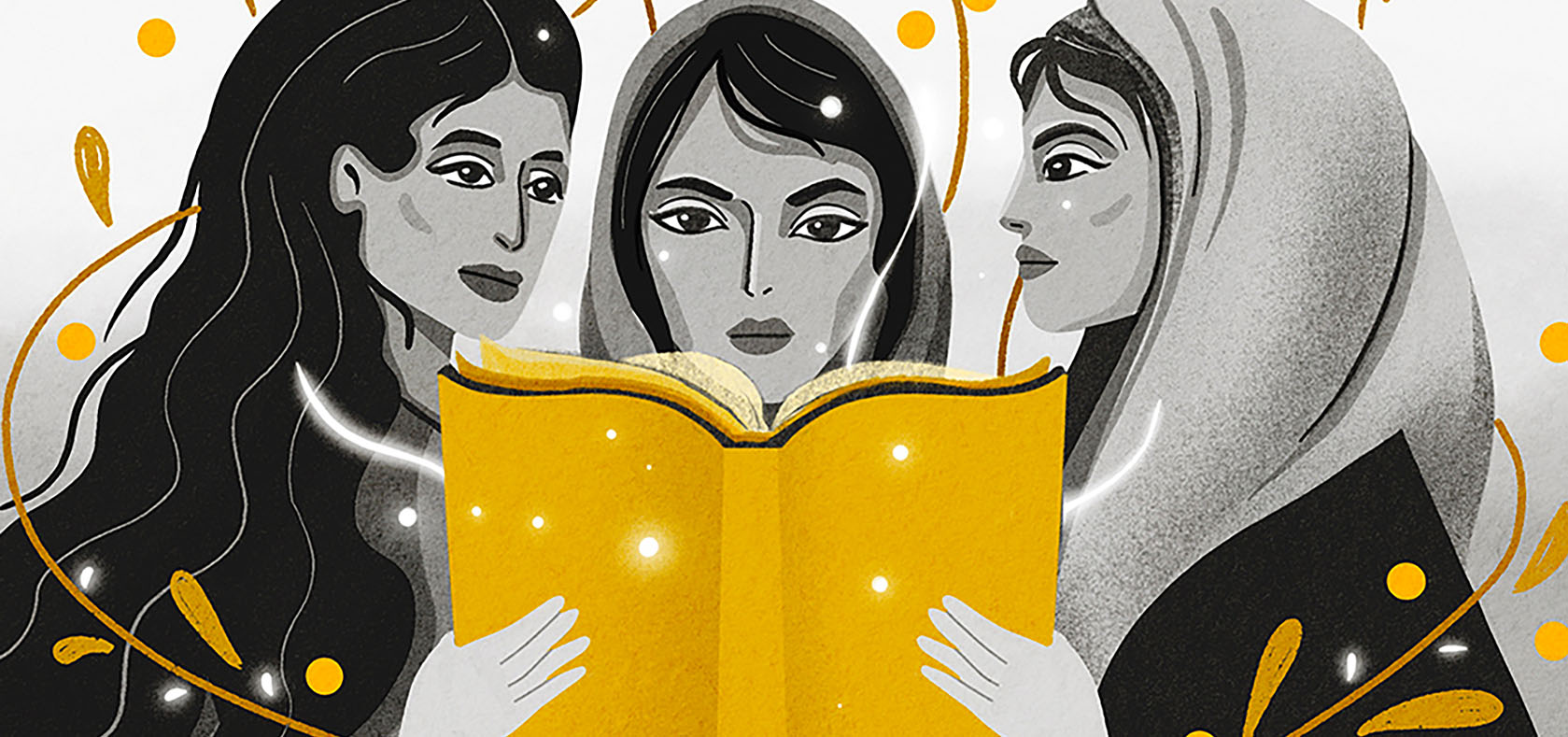In the words of Karima*: “I look back and it makes me sad that things in Afghanistan have gone back to the way they were 21 years ago.”
Date:

Karima*, 21, is a young university student who is passionate about helping others through teaching. Despite her young age, she has multiple years of teaching experience in Afghanistan. Now she wants to find ways to continue educating Afghan women given their exclusion from education within the country. Karima participated in a design thinking workshop for young Afghan leaders organized by UN Women to identify existing capacities, needs and solutions to support women’s empowerment and gender equality, and influence peace discussions in their home country Afghanistan.

When the Taliban took over Afghanistan for the first time [in the 90s], my family fled to Pakistan. All my siblings and I were born there and went to a Pakistani school.
Living as a refugee in Peshawar was not free of obstacles. At school and other educational institutions my sibling and I attended, we were always called ‘mohajer’ [refugee] or ‘Chinese’ because of the way we looked. Sometimes when a terrorist attack happened, the government would report that it was the Afghans’ fault, which caused the Pakistani people to see us as terrorists.
In the year 2010, when I was 9 or 10, my father decided that we would move back to Afghanistan. He said we children needed to learn our language and culture. The neighbourhood was full of girls my age. One day, I met several washing dishes in the river near their house. I asked them what they did. They replied, ‘We wash the dishes, clean the house and look after our younger siblings.’ I was shocked that a 10-year-old girl cleaned and looked after the younger children. I then asked: ‘Where is your school?’ They responded: ‘There is no school for girls. There is just one school for boys, and it is very far. We are not allowed to go to school because our father tells us to do the house chores. And it is useless when we get educated.’ Hearing this, I got sad and angry. It was their right to get educated! Then I asked the girls if they wanted me to teach them. They agreed without hesitation. The girls used to come to my house some days, but then they stopped coming because I think somebody told their fathers.
In 2015, I found a study centre where I enrolled and started to learn English. They even allowed me to teach. I must have been 14 at that time. My students were all girls of different ages. I even taught some of my classmates and university students. I taught in different centres and organisations for six years.
In 2018, I was in Bamiyan, central Afghanistan, when the news reported that the Taliban had arrived. People knew that if the Taliban came to Bamiyan, they would take revenge and kill everyone because the Taliban are Pashtun and we are Hazara. The new generation says that they don’t discriminate based on religion but deep in their hearts I think they don’t like Shia people because we believe in different imams. Hazara people were tortured, raped, killed, and sold in the past. We are hardworking and high-achieving people. Because other ethnicities did not like us, Hazara people were sent to remote areas of Afghanistan where the climate is bad, crops cannot grow and travel is challenging.
In the spring of 2021, I received a scholarship and left Afghanistan to study at a university abroad. The day the Taliban took over Afghanistan [15 August 2021], I was studying for an exam. My former colleagues who have been evacuated asked me where my parents were. They told me: ‘The situation is really bad.’ This sentence broke me into pieces.
A lot of people, children, died while fleeing. Every time I hear the heartbreaking and shocking news about Afghanistan, I get emotional and just cry. It’s my people, it’s my family, it’s my country. I can’t stand seeing them being hurt.
My sister and other girls still cannot go to school because they are not allowed and schools are closed. Besides, they cannot go outside alone. They must have a male companion even if they want to go to the doctor. They cannot work. They were fired from the jobs they had. My friends who are still in Afghanistan tell me that while going to university, they have to just wear black from head to toe.
The years that I was living in Afghanistan leading up to my departure in 2021, Kabul had become a nightmare. People weren't sure if they would come home in the evening. People thought and expected that they might be killed by a bomb blast. And there was no hope. That’s not right. There should always be confidence in today and tomorrow. I look back and it makes me sad that things in Afghanistan have gone back to the way they were 21 years ago.
The collapse of Afghanistan changed me completely. I decided to study and become a person who can bring change to Afghanistan. I decided to work hard and find ways to help my people. Just wishing for peace and security for Afghanistan is not enough. There has to be equality, jobs and peace and security so that everyone can live peacefully and grow.
* Names, locations and details have been changed to ensure the safety of the featured protagonist.
[Originally published on UN Women ECA]
The article was prepared under the UN Women regional programme “Enhancing women’s leadership for sustainable peace in fragile contexts in the Middle East and North Africa region”, funded by the German Federal Ministry for Economic Cooperation and Development (BMZ) in cooperation with Deutsche Gesellschaft für Internationale Zusammenarbeit (GIZ) GmbH.